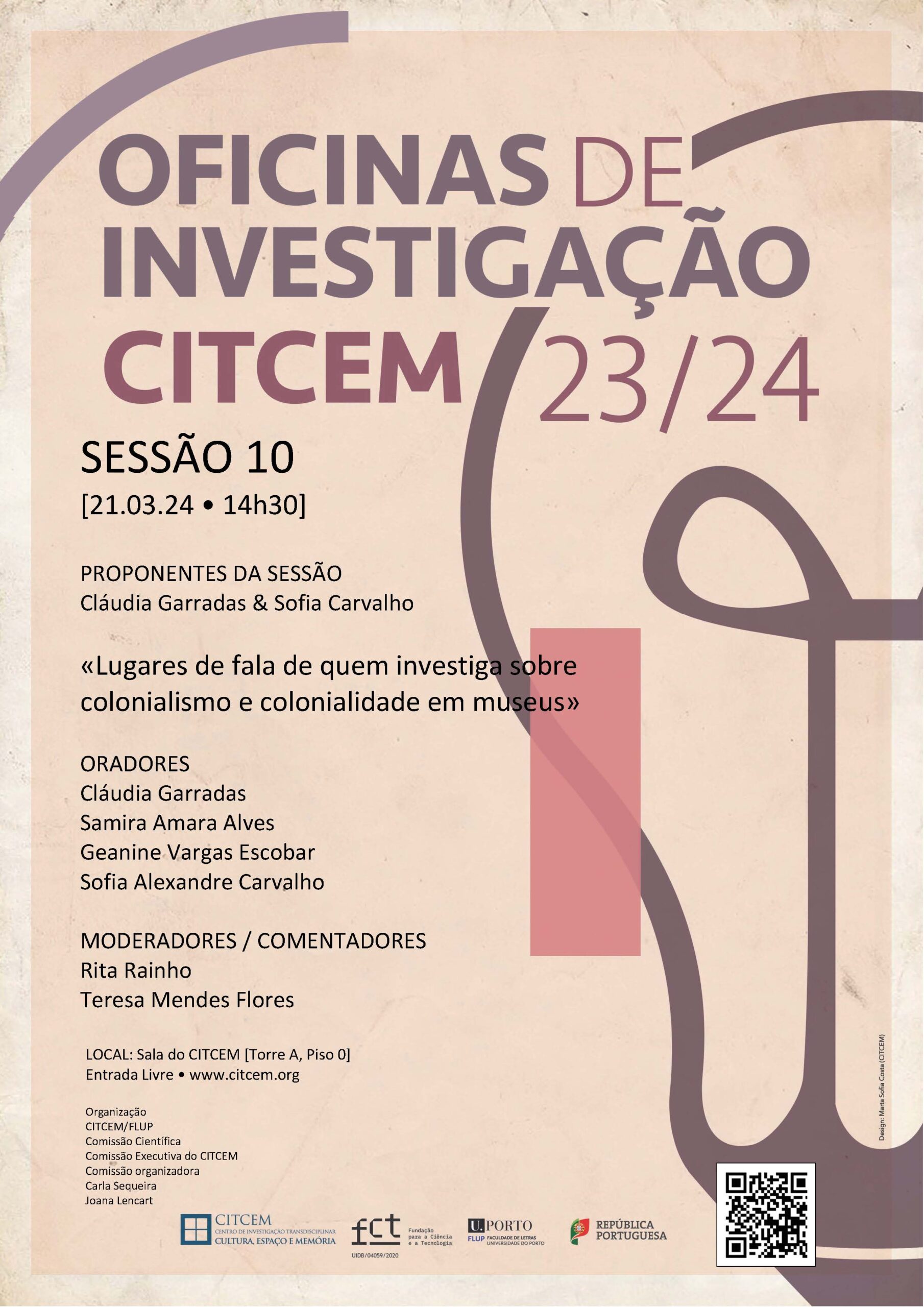Events

Local:
Start Date:
End Date:
Hours:
Organization:
Investigation Group
Event type:
10th SESSION OIC 2023/24 "Places of speech of those researching colonialism and coloniality in museums"
Session leader: Cláudia Garradas & Sofia Carvalho
Title/General theme of the session: “Places of speech of those researching colonialism and coloniality in museums”
Session Summary:
It is intended that this CITCEM Research Workshop will serve as a space for debate on how the researcher’s place of speech influences, conditions and overflows the research process, particularly with regard to projects in the field of museology and their intersections with colonialism, coloniality and racism. This will be a workshop dedicated to methodology(ies), focusing on sharing experiences and knowledge about the power dynamics associated with the epistemological and ontological position of the researcher who works from the perspective of museology and its intersections with colonialism, coloniality and racism. We invite participants to share research experiences that may be left out of the written component of the thesis, but which have guided and conditioned the research in terms of methodological choices. The aim is to present cases in which the researcher’s place of speech played a decisive role in the research process, in situations such as: (re)defining the research design, access to interlocutors and/or case studies; the procedures adopted during fieldwork, etc. This workshop is designed to be a safe space for sharing, vulnerability and learning from the experiences of researchers whose bodies are performed and read according to different social markers – in an approach that is especially attentive to the intersections between gender, race and class – and how their place of speech decisively influences the research process.
Name of the speakers and their paper titles:
Colonial narratives in maritime museums: the tides of an investigation | Cláudia Garradas
Afrolatinoamericanity: multiple legacies and dysphonia in a trajectory of epistemological choices and refutations | Samira Amara Alves
Sociomuseology-Zami: Why? | Geanine Vargas Escobar
Whiteness and the decolonization of museums: building a personal archive | Sofia Alexandre Carvalho
Moderators-commentators of the session:
Rita Rainho
Teresa Mendes Flores
Free Entry!
Webpage OIC: https://oficinascitcem.wixsite.com/oiccitcem
